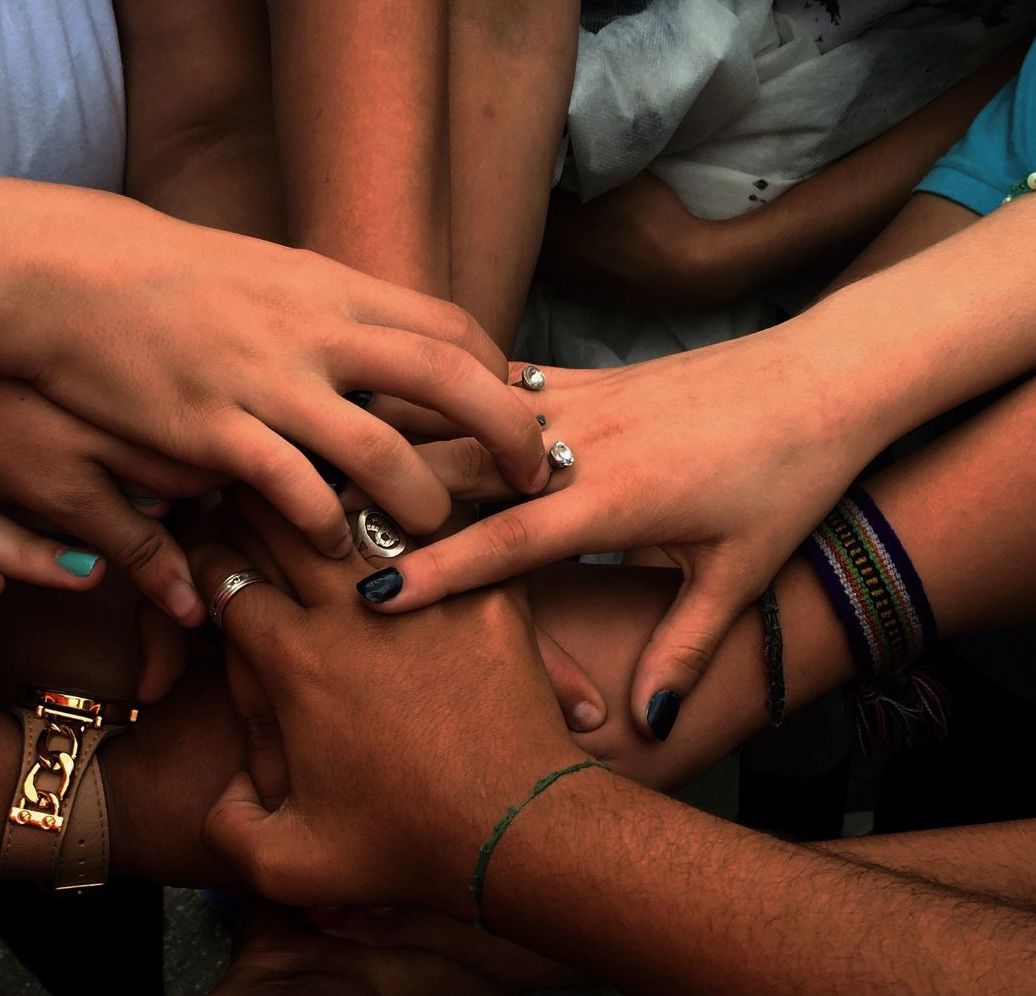The Fowler Museum at UCLA Presents
Construction, Occupation
A Major International Exhibition Exploring Art, Activism, and Housing Justice
On view May 4 - January 11, 2026
Curated by Associate Professor Alex Ungprateeb Flynn (UCLA’s Department of World Arts and Cultures/Dance) and São Paulo-based independent curators Juliana Caffé and Yudi Rafael, Construction, Occupation highlights the power of creative resistance, drawing direct connections between São Paulo and Los Angeles. The exhibition revisits and extends the groundbreaking 2016-17 “Cambridge Artistic Residency” (CARe) in downtown São Paulo, where an abandoned 17-story hotel was occupied by low-wage workers, refugees, and artists, ultimately leading to its transformation into government-funded social housing and a vibrant cultural hub. At the Fowler, the exhibition will feature photography, video, and installations from the original CARe residency alongside newly commissioned works, offering a compelling visual narrative of collective action, protest, and the radical potential of artistic practice to reimagine the urban landscape.
“Construction, Occupation examines art’s potential to shape the spaces in which we live, presenting a radical urban vocabulary that blurs the boundaries between art and activism,” says co-curator Alex Ungprateeb Flynn. “By linking São Paulo’s history of occupation-based social change with the urgent housing crises in Los Angeles, Construction, Occupation proposes new models of resistance and collective action to reclaim space and advocate for social justice.”
Participating artists include Raphael Escobar, Julián Fuks, Jaime Lauriano, Ícaro Lira, Virginia de Medeiros, Edgar Calel, Dulcinéia Catadora, Explode!, JAMAC, Rosa Gauditano, André Komatsu, Cinthia Marcelle, Bijari, Contrafilé, Noara Quintana, Frente 3 de Fevereiro, Preta Ferreira, Sato do Brasil, Cozinha Nove de Julho, and others.
"Bringing Construction, Occupation to the Fowler aligns with our commitment to presenting exhibitions that challenge perspectives and foster meaningful dialogue on global social issues," says Silvia Forni, Shirley & Ralph Shapiro Director of the Fowler Museum. "By showcasing the intersection of art and activism, this exhibition highlights the transformative power of community-driven artistic practices and invites visitors to reconsider the role of public space in shaping equitable cities."
Exhibition Themes and Highlights
The exhibition is structured around three principal themes: Infrastructure and Vulnerability, Segregation and Circulation, and The Body in Public Space. Many artworks relate to key moments of housing justice movements in São Paulo, from the Prestes Maia occupation in the 2000s to the Cambridge Hotel occupation and the ongoing 9 de Julho Occupation, which today houses over one-hundred families. By engaging with these communities of resistance, Construction, Occupation invites visitors to reflect on how urban spaces can be reimagined through collective action.
Notable works include:
● Jaime Lauriano’s Monumento às Bandeiras, which critically examines Brazil’s colonial past and its lasting impact on urban segregation.
● Dulcinéia Catadora’s Vocabulario Vivido, an interactive book project that juxtaposes dictionary definitions with testimonies from housing activists.
● Noara Quintana’s Margem do Céu (On the Verge of Heaven), a suspended sculpture that speaks to the relationship between displacement, shelter, and urban transformation.
● Cinthia Marcelle’s R=0 (Homage to the L.A. Rebellion), a poetic installation celebrating the L.A. Rebellion film movement.
● Edgar Calel’s Aztuk – Birds Labyrinth, a work inspired by conversations with São Paulo’s Guarani community, offering an Indigenous perspective on urban life.
● Virginia de Medeiros's Female Guerillas, an installation of videos and photographs in which Medeiros explores the female protagonism within social movements in São Paulo.
● Rafael Escobar's Som da Maloka, which presents the rich cultural and musical history of
Cracolândia, an area of downtown São Paulo characterized by a large unhoused
population.
● The participation of historical collectives of artists who created, through collaborative
processes, works at the intersection of art, public activism, the city, and media, such as Frente 3 de Fevereiro, Bijari, Contrafilé, Dulcinéia Catadora, Cozinha Ocupação 9 de Julho, Explode!, and Legítima Defesa.
Public Programs and Community Engagement
In keeping with the participatory nature of the original residency, Construction, Occupation will feature a robust lineup of artist-driven public programs, roundtable discussions, and film screenings, in partnership with local organizations and advocacy groups addressing housing justice.
Related programming includes:
What is a Landmark? Food, Storytelling, Music and Cartonera Construction with the Cartonera Santanera Collective
Saturday, April 26, 2–4pm
In person
Opening Celebration: Construction, Occupation
Saturday, May 3, 6-9pm In person
Artist Conversations: Raphael Escobar
Tuesday, May 6, 2025, 7–9pm
Off-site; Skid Row History Museum & Archive
Artist Conversations: Preta Ferreira with Claudio Bueno
Wednesday, May 7, 6–8pm In Person
Roundtable: Contemporary Art and Society in Brazil
Friday, May 16, 7–9pm In person
Discussion: The Global Struggle for Housing Justice
Tuesday, May 27, 12–1pm (PST) Online
Lunch & Learn: Juliana Caffe
Monday, June 2, 2–2:30pm Online
About the Fowler Museum at UCLA
The Fowler Museum at UCLA explores global arts and cultures with an emphasis on Africa, Asia, the Pacific, and the Indigenous Americas—past and present. Through innovative exhibitions and programming, the Museum fosters cross-cultural understanding and critical discourse on pressing contemporary issues. The Fowler Museum is one of three public arts institutions of the School of the Arts and Architecture at UCLA. Learn more at fowler.ucla.edu.
Fowler Museum at UCLA, 308 Charles E Young Dr N, Los Angeles, CA 90024
Museum Hours:
Wednesday: 12pm - 8pm Thursday - Sunday: 12pm - 5pm
Admission and programs are always free and open to the public.
